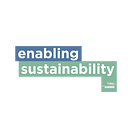The True Cost of Food: The Value of Organic to Human Health
This brief presents the current state of knowledge on the health impacts of organic versus conventionally produced food. We start by examining the existing global market of organic food, and then explore a variety of human health benefits that could be realised through a greater adoption of organic production and processing techniques.
Expanding organic production to feed the world
The organic food and beverage industry has rapidly developed over the last 50 years. Worldwide sales exceeded US$100 billion in 2018, and are projected to grow to US$323 billion by 2024. However, this remains a fraction (0.18%) of total global food and beverage sales, estimated at about US$57 trillion in 2018, and projected to increase to US$106 trillion in 2024. This, even if sales of uncertified (but in line with basic organic standards) farms selling directly to consumers are taken into account.
So, would there be a significant benefit to human health if more of the world’s food supply came from certified organic sources?¹
Contrary to conventional wisdom that views organic production as a niche sector, organic food production could take on a much bigger share of the global supply chains. The conclusion of a recent study ² that analysed the capacity of organic farming to feed a growing global population, can be summarised as, “yes — but.” According to the study team, increasing the share of organic foods is possible if several complementary strategies are implemented in tandem: reducing food waste by 50%; significantly cutting back on meat consumption; and finding alternative, non-chemical, sources of nitrogen, which would be a limiting factor in an all-organic strategy.
The health benefits of consuming organic foods
The health advantages of organic versus conventional foods primarily emanate from the use of stricter regulations regarding non- organic and chemical inputs, as well as a focus on soil building and other sustainable farming practices. While the organic industry has much to offer, there is need, nevertheless, to avoid replicating some of the human health issues associated with the dietary patterns of the global, conventional food system.
Probably the most obvious health benefit of organic food is the minimal, to non-existent, levels of pesticide residues. There is growing evidence that the toxicity implications of pesticides used in conventional production — including information released during some of the United States lawsuits regarding glyphosate. Moreover, endocrine disrupting chemicals, which are widespread in the environment, are clearly detrimental to human health. Consuming organic foods is one way to help limit exposure.
Among approximately 389 pesticides approved for conventional production in the EU, 102 are acutely toxic, and 28 carcinogenic. By comparison, of approximately 35 pesticides approved for organic use in the EU, only pyrethroids demonstrate acute toxicity. When measured against conventional production, therefore, organic wins by a landslide.
There is also evidence that consumption of organic food is associated with lower pesticide residues in human urine. The exact implications of these urinary residues for human health are not currently clear, but it does point to the wisdom of applying the precautionary principle in approving their use.
With regard to claims that organic foods are nutritional superior to conventional foods, however, this is largely not borne out from research to date. It appears that a variety of processing factors are more critical to preserving the nutritional quality of foods than the relatively modest increases reported in organically grown crops.
Nonetheless, it is clear that overall plant defence compounds, such as phenols, do tend to be significantly higher in organic crops. While various phenols have been demonstrated to have health-promoting benefits it is not currently possible to apply specific health benefits to specific levels of intake. Some tissue culture studies have explored the utility of these compounds in, among other attributes, retarding cancer growth. However, there is as yet too little work on humans to draw concrete conclusions. That said, it is clear that increased consumption levels of phenols can have positive human health attributes, even if there is need for more research in this area.
Another broad correlation drawn between consuming organic foods and improved health outcomes, is that organic consumptions tends to go with healthier dietary patterns, such as the consumption of more fruit, vegetables, and whole grains. Another inference made regarding lifestyle choices is the apparent lower incidence of allergic reactions among young children whose mothers consume organic foods. Notwithstanding, it may be too early to make such a direct link to diet as the determining factor, as opposed to the interaction between diet and other lifestyle choices.
One area where an all-organic diet may not necessarily be healthy is if the food consumed is not sufficiently varied. No matter the origin, an excess consumption of refined sugar, fat, meat, and highly processed foods, is still detrimental to health. The resulting “epidemic” of chronic diseases linked to such unhealthy diets is now prevalent, as evidenced by the rise of obesity, Type II diabetes, heart disease, and certain cancers, in virtually all parts of the world.
The health benefits of producing organic foods
In contrast to conventional farming practices, the range of activities generally mandated within organic production (see, for example, the relevant EU regulations) can help enhance the health of workers and local community members. They include:
- Restrictions on fertiliser types together with increased ground cover reduces nitrogen flows to underground aquifers. This in turn leads to less water contamination and attendant health impacts.
- Increased ground cover within organic systems to reduce bare soil and soil erosion limits the flows of phosphorus/ nitrogen to surface waters. High nitrogen levels contribute to water contamination, and the growth of toxic algae, among other negative impacts.
- Prohibition of routine antibiotic use in animals not only reduces the susceptibility of farm workers to antibiotic-resistant bacteria, but also helps prolong effectiveness for human medical use at global scale. Routine, non- therapeutic antibiotic use is considered a major public health risk to the treatment of infectious disease, due to its link to anti-microbial resistance. In light of emerging consensus on this issue, the World Health Organization (WHO) has called for an end to the use of antibiotics in healthy animals.
- Crop rotation and soil building requirements enhance the potential for good soil health and tilth. This enhances production resiliency during drought (see above) and can thus help improve food security at a time of growing climatic uncertainty.
While many of these health-promoting agricultural practices are common among organic growers, they are not limited to organic production systems. Conventional farmers have the choice to follow recommended good agricultural practices, that include reducing pesticide inputs, applying ground cover practices, or restricting routine antibiotic use. Compared to organic production, however, they are not mandatory practices that can be specified on food packaging. This means that when buying conventional products, consumers cannot tell the difference in the farm practices used.
Another worthwhile strategy to improve human health is to pursue safe working conditions, regardless of farm type. Most organic certifications do not stipulate labour standards, such as how to protect farm workers when using pesticides, or protocols on equipment safeguards. Thus, working conditions on organic farms can be dangerous, although certainly less toxic, than in conventional applications.
Conclusion
We started off by stating that it is feasible to meet the global demand for food, and contribute to positive health outcomes, if a much greater percentage of food supply is organically produced. However, this calls for changes in current production and consumption patterns, such as achieving significant reductions in food waste and meat consumption.
This Brief argues that organically produced food generally outperforms conventional production with respect to primary (e.g. phytochemicals) and indirect human health benefits. This is due to, among others, the knock-on effects of stewardship practices that lower pesticide loads, reduce endocrine disrupting chemicals, and limit antibiotic exposure.
These differences are certainly strong reasons to consider the benefits and costs of agriculture beyond direct production, sale, and other financial costs. It justifies the need for companies along the entire food supply chain, as well as institutions involved in food governance, to incorporate human health impacts into their accounting practices. It calls for a true cost accounting of the food system.
[1] However, it is important to note that several organic certification systems exist which differ in their rules. This brief focuses on the EU organic certi- fication protocols. For information on EU standards see https://ec.europa.eu/info/food-farming-fisheries/farming/organic-farming_en
[2] Muller, A., Schader, C., El-Hage Scialabba, N., et al. (2017). Strategies for feeding the world more sustainably with organic agriculture. Nature Communications, 8(1). doi:10.1038/s41467–017–01410-w
Written by Michael Hamm (Michigan State University), Olivia Riemer (TMG — Töpfer Müller Gaßner GmbH) and Alexander Müller (TMG — Töpfer Müller Gaßner GmbH)
Read more about the True Cost Accounting initiative here.
Read more about TMG’s work here.

